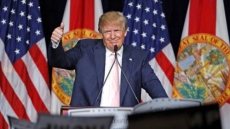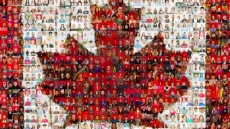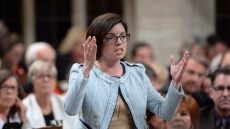OTTAWA — The Liberals have no plans to make Canada's employment insurance fund independent of the federal government, Finance Minister Bill Morneau said Thursday.
"I think the current system works," he said in a round-table interview with The Canadian Press.
Morneau said new measures to help the unemployed are included in his recently tabled budget.
The NDP and Bloc Quebecois, however, have long wanted the fund to be independent to prevent governments from using surpluses to reduce budget deficits or pay down debt.
Employment insurance surpluses were $3.5 billion in 2014 and $2.2 billion in 2015, with the money going directly into government coffers.
The government predicts an EI surplus of $1.2 billion in 2016 and a deficit in 2017 when the Liberals plan to introduce a reduction in premiums.
Contributions to the EI fund will be lowered that year to $1.61 per $100 earned from $1.88 — a sharper decrease than the Liberals promised during the election campaign.
Morneau said during the interview an actuarial report is conducted every year to help the government set the ideal insurance premium.

"We want to be transparent," he said. "I think with the report, we can explain clearly the premium required for employers and employees. So that's our decision for now."
NDP MP Guy Caron said workers and employers should determine for themselves how to spend the money in the fund and decide whether to lower premiums.
"Instead of increasing accessibility, particularly during difficult economic times, they're lowering the premiums," he said in a telephone interview. "That was the choice of the government. Once again, there weren't any consultations with those who pay the premiums."
He said 850,000 unemployed people in Canada don't qualify for EI benefits.
The government says new policies introduced in Tuesday's budget will give another 50,000 people access to EI benefits.
Caron said it was a step in the right direction but that too many people are still left out.
The NDP MP added that even though the EI fund looks like it will be balanced over the next few years, it might not stay that way.
"We could once again reach a surplus," he said. "And once again, because the fund is not independent, the money will go into government coffers as has been the case for the last 25 years."





